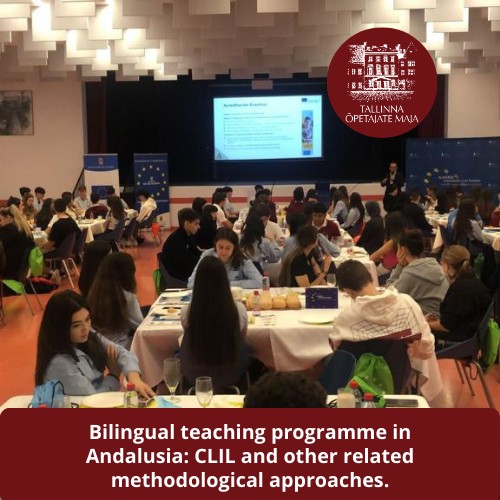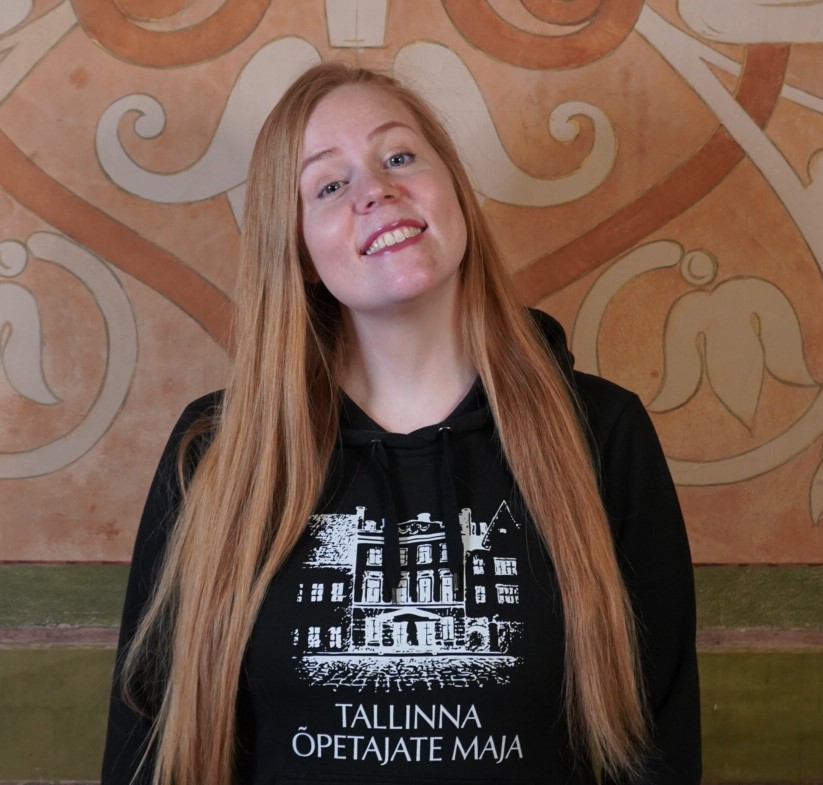Bilingual teaching programme in Andalusia: CLIL and other related methodological approaches – inglise keeles
Koolituse detailid
Asukoht
Veebikoolitus. Osalustingimuseks on kaamera ja mikrofoni kasutamine kogu koolituse vältel.Aeg
Palume registreerumisel jälgida, et võimalik on osaleda kõikidel kuupäevadel: 20.02.2024, 27.02.2024 kell 16:00-17:30.Maht
4 akadeemilist tundiKoolitaja
Daniel Prados (Hispaania)Grupi suurus
Kuni 24 osalejatHind
Tallinna haridustöötajatele tasuta
Daniel Prados is from Spain. He obtained his degree on English Philology at Granada University and became an English teacher in secondary and upper secondary education. While he still keeps his post at IES Sabinar secondary and Bachillerato school, he has worked at Delegación de Educación, the educational administration in Almería, for the last four years, helping schools develop their bilingual teaching and internationalization programmes. He is also a language training consultant at CEP de El Ejido.
Target group:
Language teachers at primary, secondary and upper-secondary level. Teachers of non-linguistic subjects that might need to teach through a foreign language.
The training will be divided into two sessions of one and a half hours each.
First session:
- Brief introduction to the Spanish education system and its main challenges
- Basic information about the bilingual teaching programme in Andalusia
- Methodology for bilingual schools
- Language assistants programme
- Internationaliszation: eTwinning and Erasmus+ projects
Second session:
- CLIL methodology: definition, principles and characteristics
- Other related active methods: communicative approach, task-based learning, flipped classroom, cooperative learning, etc.
- Use of ICT tools in the CLIL classroom
- Assessment
Learning outcomes:
Training 1:
As a result, the participant is expected to:
- get knowledge about the main characteristics of the Spanish education system and compare it to the Estonian system;
- learn about the bilingual teaching programme in Andalusia and how the schools that follow this programme are organised;
- understand the methodology applied in these schools;
- get insight into the language assistants programme and how it is integrated in the bilingual programme;
- know facts about international projects in the province of Almería.
As the Spanish education system will be compared to the Estonian one, some interaction is expected from the participants.
Training 2:
As a result, the participant is expected to:
- understand what CLIL methodology is, how it works and why it can be so beneficial to students;
- relate CLIL to other active methodological approaches such as cooperative learning and understand how they can help students learn more effectively;
- get ideas how to use effectively various digital and web-based tools in the CLIL and foreign language classrooms;
- know how to evaluate students by paying attention to individual differences.
To understand how CLIL works, it is necessary to introduce some theoretical principles such as scaffolding, Iceberg Theory or Bloom’s taxonomy. Though this may sound too academic, the intention is to transmit how closely these concepts are related to the daily practice of the participant teachers. When talking about other active methodological approaches related to CLIL, the focus will be particularly on cooperative learning. At the end of both sessions there will be some evaluation to provide feedback.
Võta ühendust koolitusjuhiga


